Europe

- Region: North Sea
- Date: Sept, 2023

Shearwater GeoServices, a global provider of marine geophysical services, has successfully completed a carbon storage survey project for TotalEnergies.
The survey covers a CO2 geological storage license in the Danish North Sea which was awarded to TotalEnergies in February 2022.
Irene Waage Basili, CEO of Shearwater, commented, “Carbon capture and storage is key to achieving net zero targets and Shearwater is committed to playing its part in enabling this technology to scale. We are pleased to be working with a number of clients on seismic for storage projects. Together with our clients we are learning what this emerging market requires in terms of data. Shearwater brings its extensive operational experience and technology tool kit to this dialogue.
“With each project we expand our understanding and build on our capabilities and experience. We will continue to deploy our expertise and our technology in this emerging market to provide our clients the data they need to make better decisions about their reservoirs.”
The completion of the project marks yet another successful survey the company has conducted within the field, adding to a growing list. In the last two years the company has secured multiple seismic for storage acquisition projects across multiple projects. These have been diverse and require different solutions to achieve the high-resolution imaging needed for evaluating reservoirs for storage application.
Shearwater has successfully utilised hybrid methods with both towed streamers and nodes, new acquisition geometries and worked closely with third party bathymetric service providers for high-resolution data to analyse the seabed and shallow geology in shallow water environments. In addition to acquisition, Shearwater has secured several projects processing and reprocessing data for storage applications.
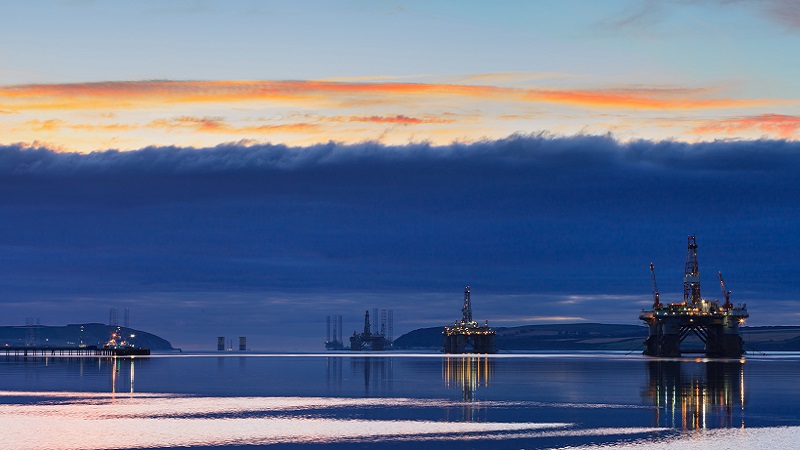
- Region: North Sea
- Topics: Decommissioning
- Date: Sept, 2023

Elemental Energies, an independent wells expert, has won a UK£10mn contract with Archer, a provider of drilling, P&A and well services, to help support a major decommissioning project in the UK North Sea.
As per the agreement, Elemental will provide complete abandonment engineering and operational support across multiple platform wells over three years. To fulfil the contract, Elemental will expand its in-house P&A team with a further 10 roles and these will help make up a multidisciplinary team of onshore and offshore engineers. This team will work alongside Archer personnel to lead abandonment planning and will support the operational activity.
Kenny Dey, Archer UK’s Managing Director, remarked, “The combined capability and experience of the Archer and Elemental Energies engineering team is raising the bar for decommissioning projects of this scale, and we are pleased to be working in partnership with their expert well engineering, operational and project management teams to deliver this major project.”
The first phase of the project will include wireline investigative work and a coiled tubing campaign. Work is already underway for this, alongside engineering of the P&A operations which are set to commence in H2 of 2024 or in 2025.
Mike Adams, Chief Executive Officer of Elemental Energies, surmised, “Our collaboration with Archer is an important milestone as we build on our extensive experience within well decommissioning. By embedding our engineering expertise within Archer we will maximise efficiencies and mitigate risks earlier in the planning and operational phases of the project.
“Efficient and expertly planned well P&A is a cornerstone for successful decommissioning globally and is a critical part of reducing long-term emissions from wells. We are passionate about the role that decommissioning plays in the energy transition, and we are proud to be delivering that alongside our partner Archer.”
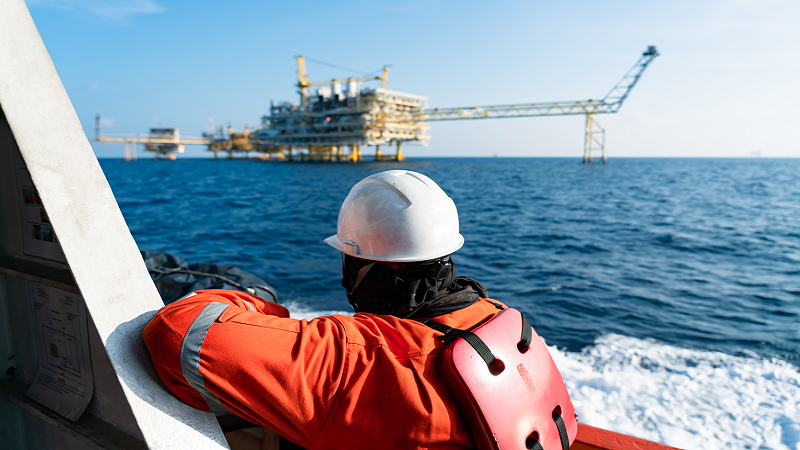
- Region: North Sea
- Topics: Decommissioning
- Date: Aug, 2023

UK well operator, Exceed, is expecting to see record-breaking revenues for the current financial year with an annual revenue of around UK£30mn – 40% of which will be attributed to decarbonisation activity.
The company, which currently acts a well operator for four clients, has grown to become one of the largest independent well and reservoir management specialists and is continuing to highlight the criticality of its capability in leading a sustainable energy transition.
So far, it has decommissioned more than 150 wells and its integrated decommissioning service via LWIV, a rig-based, rig-less and SCV, is also helping to reduce costs as well as the carbon footprint of decommissioning activities. This year, its decommissioning expertise has played a significant role in its clients’ North Sea net-zero strategies, according to the company. Activities in the region includes a six-well plug and abandonment (P&A) campaign and a late-life asset management-decommissioning alliance with a Tier 1 service company. The company has also supported an operator with the development of well access technologies for the decommissioning of complex subsea wells. Not resting on its laurels, the company has also indicated it is preparing to commence a second vessel-based well P&A campaign next month.
In addition to these activities, the company’s subsurface experts have been working in the potential repurpose of the Rough Bravo field for large scale H2 storage and, collaborating with Centrica Energy Storage+, Exceed has provided critical conceptual work and leading geo-mechanic and reservoir modelling in conjunction with a number of universities.
John Anderson, Commercial Director at Exceed, remarked, “Maximising clients’ economic recovery factor plays a critical role in ensuring the sustainable global energy transition to which we are clearly 100% committed. This includes the recent award of two major global well engineering and managed pressure drilling framework agreements, and HPHT and deepwater operations in frontier producing regions, including Namibia, Romania and Guinea Bissau.
“We’re addressing the energy trilemma of security, affordability and sustainable decarbonisation not only through decommissioning, reuse and repurpose, but also through the application of our world-renowned well engineering and drilling capabilities, which follow a strategy to eliminate or reduce each project’s direct emissions where possible.”
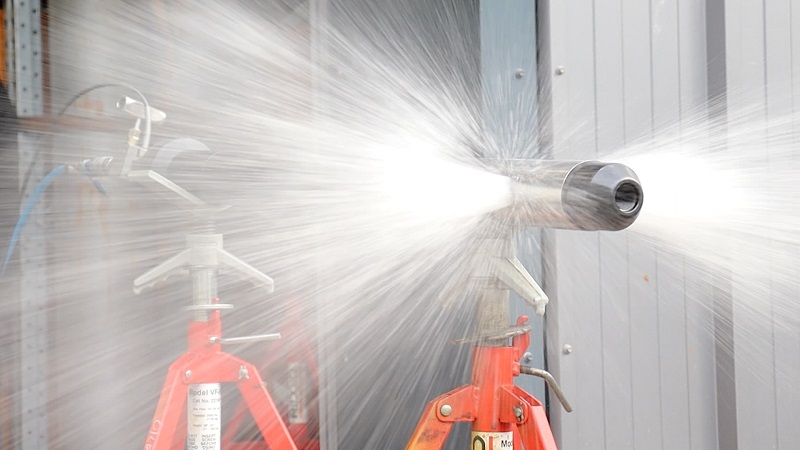
- Region: North Sea
- Date: Aug, 2023
 Oilenco has secured numerous contracts for the supply of plug and abandonment (P&A) tooling packages to operators and decommissioning specialists across Europe.
Oilenco has secured numerous contracts for the supply of plug and abandonment (P&A) tooling packages to operators and decommissioning specialists across Europe.
The packages include the Oilenco pressure wave valve, an intervention-free, open-on-demand equalising device which is set below a plug to aid in creating a barrier by applying pressure in a series of cycles.
Blair McCombie, Operations Director, Oilenco, said, “Since its first installation in 2018, the pressure wave valve has built an extensive run history and as a result has become one of the leading remote opening devices on the market. It can be functioned when required, within a few hours, days, months or even years after installation without the need for dedicated personnel on location, and once open, provides a large through-bore and pump through capabilities without the need for further intervention.
“Oilenco has a proven track record in the UKCS, providing reliable solutions for P&A campaigns. With these recent contract wins and ongoing requests from clients and decommissioning specialists, our solutions are becoming integral to P&A toolkits.”
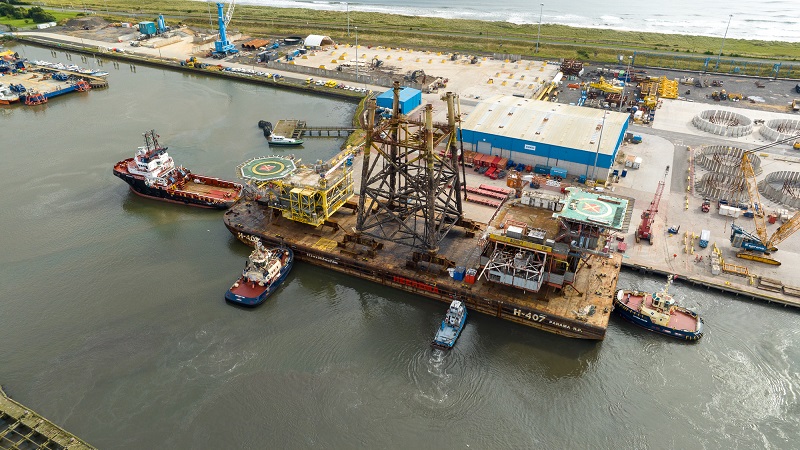
- Region: North Sea
- Topics: Decommissioning
- Date: Aug, 2023

The Port of Blyth, locate between Aberdeen and Great Yarmouth in the UK, working together with Thompsons of Prudhoe, has welcomed 7,000 tonnes of offshore infrastructure to be decommissioned.
Several topsides and jackets for three North Sea offshore oil and gas platforms were delivered to the port’s Battleship Wharf, home to its unique decommissioning facility that is operated in partnership with Thompsons of Prudhoe.
Following arrival, the assets have been successfully removes from two barges and transferred to the decommissioning facility using SPMTs. Here, they were set down onto purpose-built stools ready for demolition. These actions required a number of key contractors such as Mammoet which assisted in the SPTM operations and Harlyn Solutions which provided design and engineering works during the load out. According to the companies, the delivery of the assets is a testament to the advanced handling capabilities boasted by the port as it required exceptional planning and coordination.
Tom Koerner, Operations Director of Thompsons of Prudhoe, remarked, “We are delighted to be given the opportunity to decommission these assets on behalf of our client. This project gives us a strong platform to demonstrate and promote our capabilities to the offshore industry for all future onshore dismantling and waste disposal requirements.”
With the safe delivery successfully completed, Thompsons of Prudhoe will now progress with structural inspection, surveys and make-safe ahead of demolition (which will be carried out by mechanical means and lifting operation). The waste from the assets will be sorted, segregated and (for much of it) recycled.
Martin Lawlor, Chief Executive at Port of Blyth, commented, “By combining the port’s offshore energy cargo-related handling capabilities with Thompsons of Prudhoe’s decommissioning and demolition expertise, customers are able to rely on first-class service based on quality, safety, and performance. We have now established a great track record of successful high-profile decommissioning projects and are looking forward to supporting further decommissioning projects across the offshore energy sector.”

- Region: North Sea
- Date: Aug, 2023

NHV Helicopters, a Belgium-based provider of helicopter services for the offshore industry, has been awarded a contract by Well-Safe Guardian on behalf of Repsol Sinopec Resources UK (RSRUK) to support well abandonment operations on the Buchan Field, central North Sea.
NHV specialises in B-to-B helicopter services and boasts a strong geographic presence in Europe and western Australia. For this contract in the North Sea, NHV will provide approximately four flights per week from the Aberdeen base to the Buchan Field to facilitate seamless connectivity to the project site. The company will utilise its H175 helicopters as it carries out the contract which is due to commence in mid-September 2023.
Jamie John, Commercial Director of North Sea Energy at NHV Group, remarked, “Securing this recent contract with Well-Safe Solutions will play a pivotal role in supporting the Buchan well abandonment operations. NHV has invested a lot into the energy industry and this contract is testament to our teams drive and level of service. Our top-tier fleet, including the advanced H175 model, coupled with our experienced crew, positions us well to meet the demands of this critical phase of operations.”
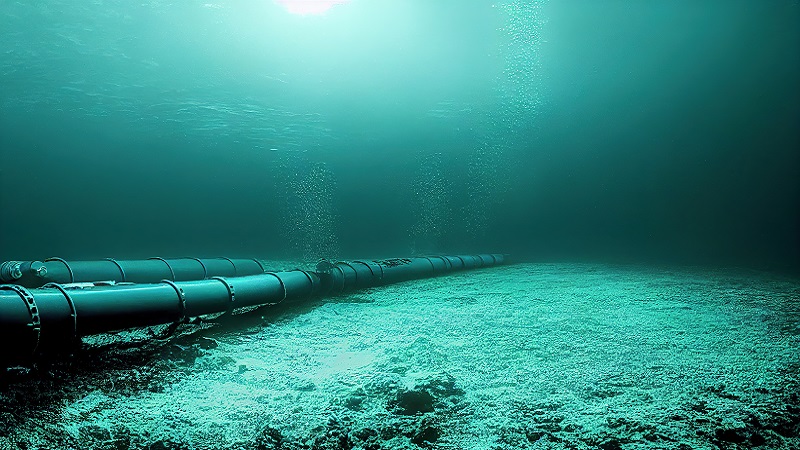
- Region: North Sea
- Topics: Decommissioning
- Date: Aug, 2023

Perenco and Carbon Catalyst Limited (CCL) have been awarded a licence to progress the Poseidon carbon capture and storage (CCS) project following the conclusion of the first competitive carbon storage licence round of the North Sea Transition Authority (NTSA).
The project encompasses the Leman gas fields, one of the largest geological structures in the southern North Sea sector of the UK Continental Shelf (UKCS) and offers depleted gas reservoirs alongside saline aquifers to permanently store recovered CO2.
According to the companies, the project has the potential to significant decarbonise the East and Southeast of England when it comes online (expected 2029). Leman is connected via pipeline to the Bacton Terminal which will be utilised to receive and process CO2 from various onshore sources. This will then be sent to be injected offshore into reservoir rocks. Initial injection rates will be around 1.5mn tonnes per annum (Mtpa) and could ramp up to 40Mtpa across a 40-year period.
With the licence awarded, the project will now move into further detailed appraisal of storage sites with work commencing to bring the concept to delivery alongside mid-stream and up-stream partners.
Jo White, General Manager Perenco UK, remarked, “This is a fantastic opportunity to leverage Perenco UK’s deep experience of gas operations by developing a project that will help to support the UK’s energy transition, generate highly skilled jobs locally and nationally, and actively facilitate the government’s net-zero targets. We look forward to working with all stakeholders to deliver this strategic project.”
Henry Morris, Executive Director at Carbon Catalyst, added, “Poseidon has the potential to make a very material contribution to the decarbonisation of the UK economy by storing up to 40mn tonnes of CO2 per year into the giant depleted Leman gas field and overlying aquifer system. CCL is looking forward to supporting Perenco as they progress through the appraisal period towards final investment decision, with the ultimate goal of achieving first CO2 injection by 2029.”
Onwards with Orion
In addition to the Poseidon project, the partners have also announced that they have been awarded two further carbon storage licences to progress the Orion CCS project, designed to deliver an initial injection capacity of 1Mtpa.
The project encompasses the decommissioned Amethyst field as well as the West Sole field (currently producing). It will use depleted gas reservoirs for permanent storage. Injection is expected to commence in 2031 and could rise to 6Mtpa.
Perenco, which owns and operates significant gas infrastructure in the Humberside area will evaluate the possibility of reusing existing assets such as Dimlington Terminal for the project.

- Region: North Sea
- Date: Aug, 2023
 Archer has been awarded a US$165mn decommissioning contract by Repsol Sinopec Resources UK Ltd. for the execution of plug and abandonment (P&A) services in the Fulmar and Halley Fields in the North Sea.
Archer has been awarded a US$165mn decommissioning contract by Repsol Sinopec Resources UK Ltd. for the execution of plug and abandonment (P&A) services in the Fulmar and Halley Fields in the North Sea.
The awarded contract is for a fully integrated P&A project, covering the complete work scope and services of the 30 Fulmar Field wells and the two Halley Field wells.
The Fulmar scope includes the removal of the existing drilling facility and the installation of Archer’s P&A rigs, as well as its full P&A well services offering to reduce time and cost. The work will be carried out using leading digital solutions in collaboration with the company’s partners, and operations are expected to commence in H2 2024.
Dag Skindlo, CEO of Archer, said, “We are delighted that Repsol Sinopec has elected Archer and our fully integrated operational model for this P&A project. The delivery model with integrated drilling and well services, supported by partners, is a step change in how operators permanently plug and abandon oil and gas wells. Archer has worked strategically over several years to develop this fully integrated model and we are excited that Repsol Sinopec has chosen Archer as its partner.
“The permanent plugging and abandonment of oil and gas wells is an essential activity as the world decarbonises on the road to net-zero. Our goal is to industrialise the P&A process and spearhead innovation to cut operators’ P&A costs globally.”
Adam Sheikh, Repsol Sinopec’s VP of Decommissioning and Energy Transition, commented, “We aim to deliver one of the North Sea’s most ambitious decommissioning programmes in the years ahead – including the full decommissioning of our Fulmar Alpha Asset. This contract award represents a significant milestone in our decommissioning journey and my thanks go to the teams for the vast amount of work to get us to this stage. We look forward to working closely with our partner Archer to safely deliver this decommissioning scope of works on our Fulmar Alpha facility."
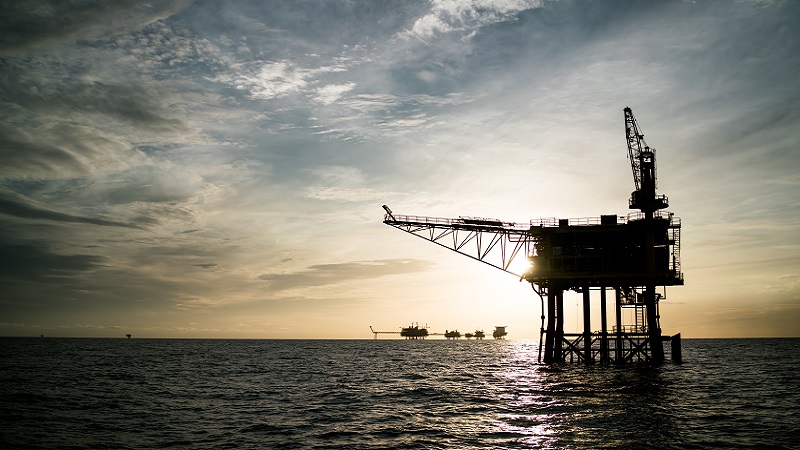
- Region: North Sea
- Topics: Decommissioning
- Date: Aug, 2023

According to new research by the North Sea Transition Authority (NSTA), the oil and gas industry in the North Sea spent UK£1.6bn on decommissioning redundant wells and infrastructure last year.
This figure is more than any in the previous five years with UK£8bn spent accumulatively between 2017 and 2022 and will remain high for the years ahead, with UK£2bn expected to be spent per year in the next decade. Of the work associated with the UK North Sea alone, UK suppliers are forecast to take the lion’s share at 70%.
The NSTA was pleased to indicate that the sector appears to be living up to its North Sea Transition Deal Pledge to ensure at least half of decommissioning spending goes to the UK supply chain and that it is meeting legal obligations to clean and remove infrastructure once production ceases. It continued that the industry has now built an impressive track record of carrying out decommissioning projects cost-efficiently and safely due to its willingness to share learnings and date. It is also embracing new technologies' commercial models.
Emerging challenges in recent years – such as a heightening demand for equipment, vessels and services from other regions and sectors – has led to an estimated total decommissioning cost of around UK£40bn that must be footed in the years ahead. However, the NSTA has stated it is confident the industry can overcome associated hurdles, meet cost-efficiency targets and ultimately lower the estimate to around UK£33.3bn by the end of 2028.
To support this, the NSTA is providing ongoing support by introducing new key performance indicators and benchmarks to provide a more complete picture of how well decommissioning projects are being planned and executed. This will help to identify opportunities for industry stakeholders to improve performance and realise further cost-efficiencies.
Pauline Innes, NSTA Director of Supply Chain and Decommissioning, remarked, “The North Sea decommissioning sector is highly active and productive, and the industry is ideally placed to realise the massive UK£21bn opportunity which will come its way over the next 10 years.
“However, operators must redouble their commitment to collaborate with the supply chain and plan even more effectively if they are to overcome challenging market conditions and remain competitive on cost. The NSTA will continue to use its powers and influence to support the industry as it strives for continuous improvement, including through the development of new benchmarks.”
Bob Fennell, DaRT Co-Chair and North Sea Executive Vice President at Harbour Energy, added, “It is critical that North Sea operators work together to ensure that oil and gas assets which, at the end of their production life, cannot be repurposed to support new technologies like carbon capture and storage, are decommissioned safely and in the most cost-effective manner. Collaborating and sharing data is an important first step to providing the supply chain with the visibility and confidence they require to meet UK demand for such works in a timely and cost-competitive way.”
More Articles …
Page 11 of 37
Copyright © 2024 Offshore Network


